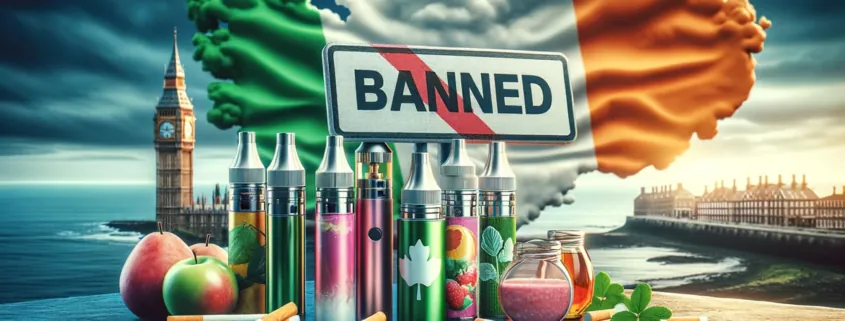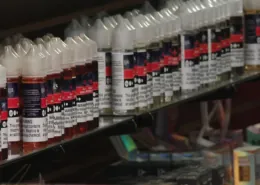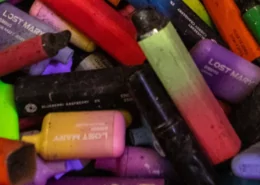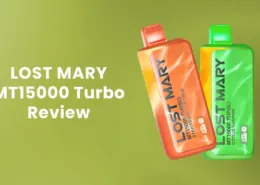Ireland Announces Controversial Vape Regulations, Flavor Bans
Ignoring successful harm reduction approaches globally, Ireland recently revealed prohibitive vape laws likely to impede smoking cessation efforts by driving consumers toward dangerous black markets.
The legislation proposed by Health Minister Stephen Donnelly establishes an age limit of 18 for purchases, restricts vape advertising, and most controversially, bans both flavored e-liquids and disposable vape devices.
While aiming to limit youth access, public health groups argue these blanket constraints on adult consumers directly contradict research showing vaping’s efficacy as a smoking alternative.
Bans Seen As Counterproductive to Harm Reduction
Experts warn bans often prove ineffective by eliminating legal retail channels without impacting underlying demand. According to the World Vapers’ Alliance (WVA), prohibiting disposable vapes specifically risks:
- Pushing vapers toward unregulated black market sources
- Deterring smokers from switching by limiting access
- Reversing progress around harm reduction
As WVA Director Michael Landl explained: “Bans do not eliminate demand but rather drive it underground, with potentially hazardous outcomes. Disposables offer an accessible transition for converting smokers.”
Indeed countries like Sweden and the UK who embrace vaping as a smoking cessation tool have recorded all-time low smoking rates thanks to their pragmatic regulatory approach.
Flavor Prohibitions Also Criticized
In addition to banning most vape product formats, Ireland’s prospective flavor prohibition represents another heavily disputed provision.
Research consistently demonstrates flavored e-liquids play a crucial role helping adult smokers quit by mitigating the harsh tobacco taste they find unpleasant. Banning options may frustrate these efforts.
For example after Estonia prohibited flavors in 2020, many vapers continued utilizing their preferred tastes by tapping black market sources, reducing visibility into consumer patterns.
If enacted, public health experts caution Ireland’s regulations could similarly backfire by either driving ex-smokers back to cigarettes or fostering an uncontrolled illicit market.
Government Commits Funding to Vaping Research
Potentially acknowledging gaps in the legislative basis, the Irish government parallelly awarded over €500,000 toward a funded study analyzing vaping’s societal impacts.
The project conducted by the Royal College of Surgeons aims to address health outcomes and marketing practices around electronic cigarettes.
Minister for Further and Higher Education Simon Harris affirmed the critical need for evidentiary research in shaping effective, proportionate vaping laws.
By examining real-world data on vaping versus smoking adoption rates nationally, policies can hopefully balance adult harm reduction against protecting adolescents.
Finding a Reasonable Regulatory Balance
Rather than restrictive bans, opponents propose implementing more balanced regulations ensuring:
- Child safety measures like identification checks at point of sale
- Marketing standards to prevent youth-targeting
- Dosage caps on maximum nicotine concentrations
Combined with proactive education around relative risks compared to smoking, this pragmatic approach can support adult access without noramalizing teen usage.
As more countries gravtiate toward prohibition without scientific support, Ireland still has opportunity to lead in forging regulatory compromise. But the path chosen by lawmakers remains uncertain.
- Bestselling Vapes in UK After Disposable Ban: What to Stock 2025 - August 8, 2025
- Argentina Debates Stricter Vape Laws Amid Prohibition Failures - August 8, 2025
- Nigeria Advocacy Group Urged to Hike Tobacco & Vape Tax by 100% - August 8, 2025









